Theorem on Friends and Strangers; Why in Any Party of Six People, Either at Least Three of Them Are Mutual Friends, or at Least Three of Them Are Mutual Strangers
Por um escritor misterioso
Last updated 16 novembro 2024
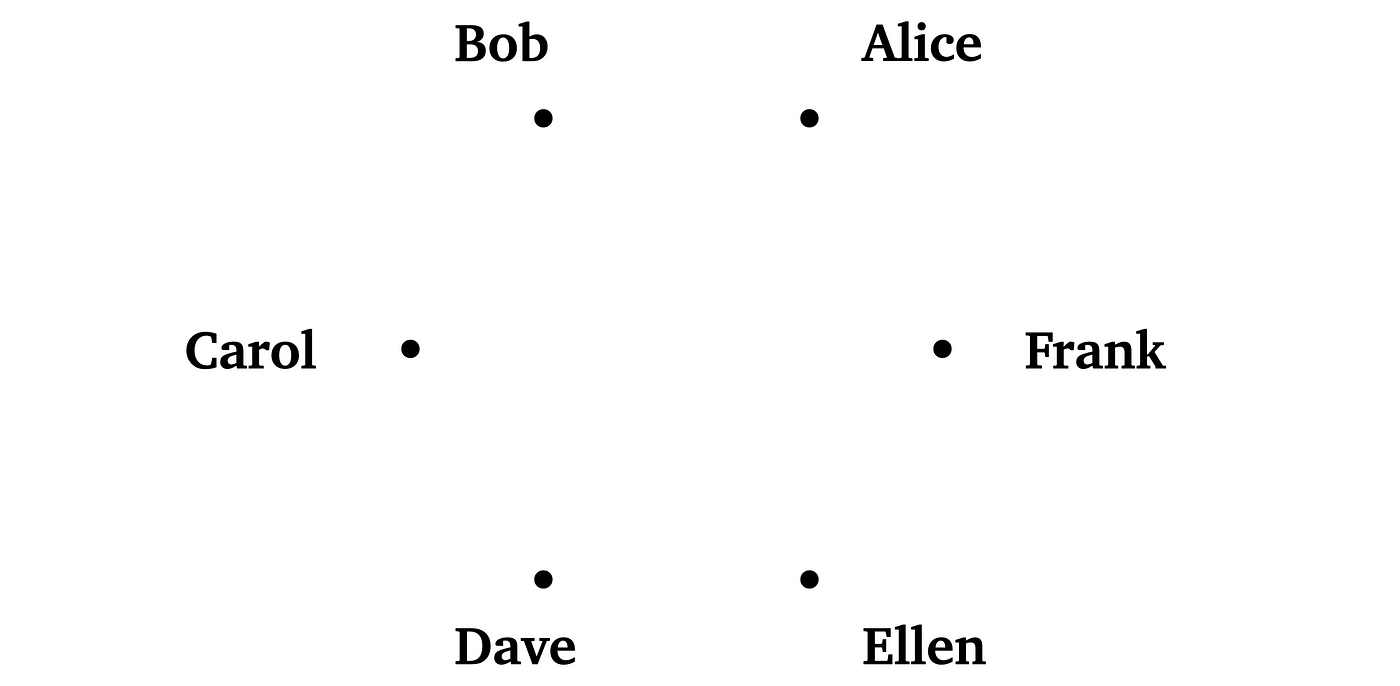
Let’s take a look at Alice first. To her, each one of the other five (Bob, Carol, Dave, Ellen, and Frank) is either a friend or a stranger. Suppose Bob, Dave, and Frank are friends to Alice, and…
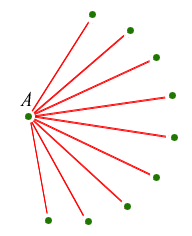
Friends and strangers
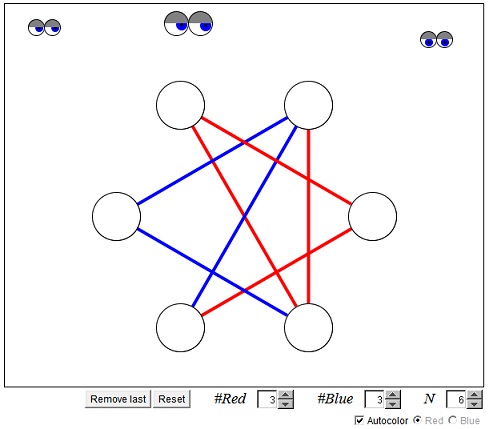
Party Acquaintances

Can Math Prove You'll Always Be the Odd One Out At Parties?, by Mary Paskhaver, Geek Culture
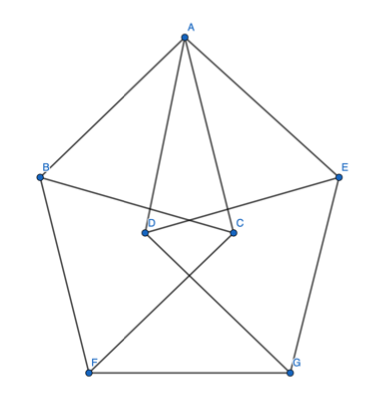
Ramsey Theorems in Euclidean Geometry — Math In Action
How to prove: at a party of six people either there are three mutual acquaintances or there are three mutual strangers - Quora
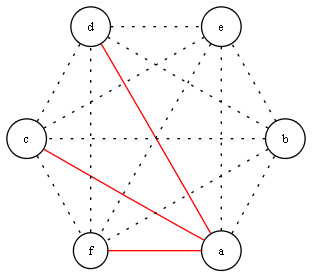
Friends and Strangers
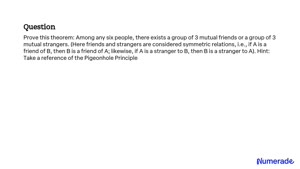
SOLVED: Prove this theorem: Among any six people, there exists a group of 3 mutual friends or a group of 3 mutual strangers. (Here friends and strangers are considered symmetric relations, i.e.

Solved Counting: product rule, sum rule, inclusion-exclusion

Friendship - Wikipedia
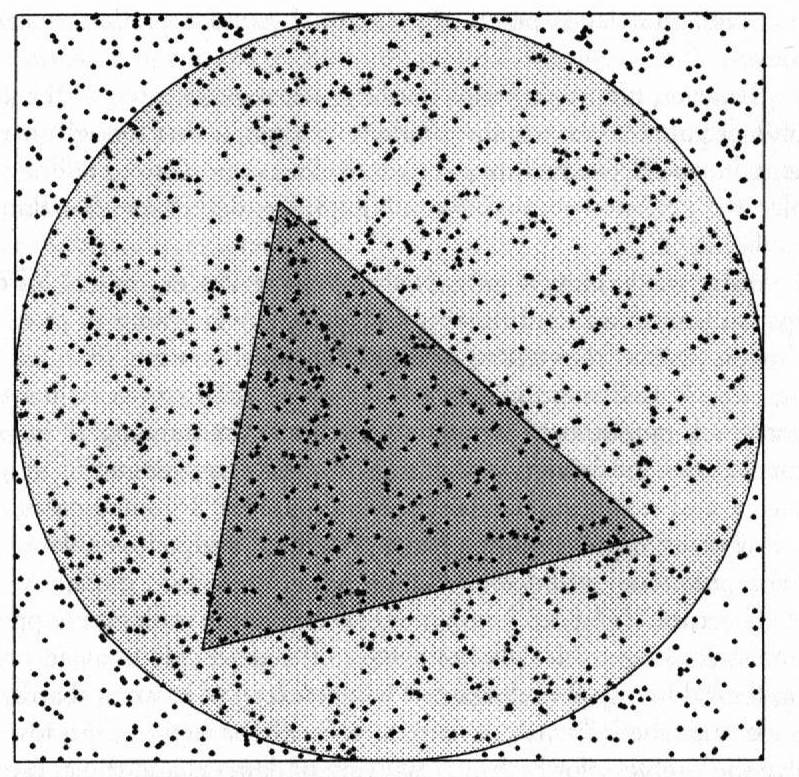
The Mathematical Tourist: February 2021
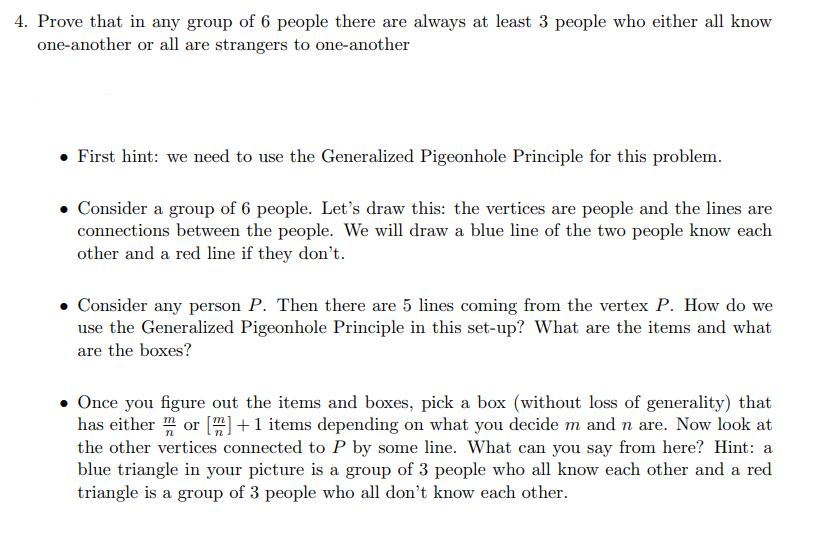
Solved 4. Prove that in any group of 6 people there are

Correlation, Causation, and Ramsey Theory

Ramsey's Theorem: Friends and Strangers
Recomendado para você
-
 Celeste - From strangers to friends (Strange) (Lyrics)16 novembro 2024
Celeste - From strangers to friends (Strange) (Lyrics)16 novembro 2024 -
 Friends and Strangers (2021) - IMDb16 novembro 2024
Friends and Strangers (2021) - IMDb16 novembro 2024 -
Friends and Strangers by J. Courtney Sullivan: 9780525436478 | : Books16 novembro 2024
-
 how to make friends with strangers. love from your friend Chris (Simpsons artist) xox : r/chrissimpsonsartist16 novembro 2024
how to make friends with strangers. love from your friend Chris (Simpsons artist) xox : r/chrissimpsonsartist16 novembro 2024 -
 strangers to friends, friends into lovers, then strangers again : r/Hungergames16 novembro 2024
strangers to friends, friends into lovers, then strangers again : r/Hungergames16 novembro 2024 -
 Quotes 'nd Notes - Friends turned into strangers.. —via16 novembro 2024
Quotes 'nd Notes - Friends turned into strangers.. —via16 novembro 2024 -
 Strangers Can Become Best Friends Life lesson quotes, Stranger quotes, Lesson quotes16 novembro 2024
Strangers Can Become Best Friends Life lesson quotes, Stranger quotes, Lesson quotes16 novembro 2024 -
 Napoleon Quote: “Strangers are just friends waiting to happen. To become a good man, one must16 novembro 2024
Napoleon Quote: “Strangers are just friends waiting to happen. To become a good man, one must16 novembro 2024 -
 Volunteering Solutions on X: Strangers are just friends waiting to happen. #Travel #Quotes #Quoteoftheday #tuesday / X16 novembro 2024
Volunteering Solutions on X: Strangers are just friends waiting to happen. #Travel #Quotes #Quoteoftheday #tuesday / X16 novembro 2024 -
 Social Skills Story - Stranger, Friend, Acquaintance - Special Education16 novembro 2024
Social Skills Story - Stranger, Friend, Acquaintance - Special Education16 novembro 2024
você pode gostar
-
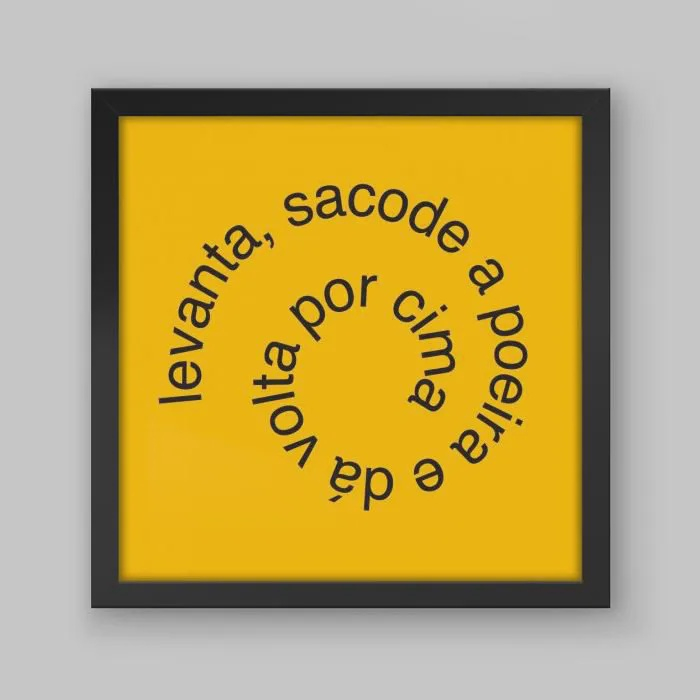 Quadro Frase Levanta Sacode a Poeira iii em Promoção na Americanas16 novembro 2024
Quadro Frase Levanta Sacode a Poeira iii em Promoção na Americanas16 novembro 2024 -
 PS4 500GB BO2 Bundle16 novembro 2024
PS4 500GB BO2 Bundle16 novembro 2024 -
Futebol feminino: Benfica sobe para o 15.º lugar no ranking da UEFA16 novembro 2024
-
 I lost access to my verified roblox email : r/RobloxHelp16 novembro 2024
I lost access to my verified roblox email : r/RobloxHelp16 novembro 2024 -
 Consulta Grátis com Cartas Ciganas. Live /Ao Vivo só inscritos16 novembro 2024
Consulta Grátis com Cartas Ciganas. Live /Ao Vivo só inscritos16 novembro 2024 -
 Congratulations to our new world number 116 novembro 2024
Congratulations to our new world number 116 novembro 2024 -
 DeepWoken How to Upgrade Mantra!!! (Roblox)16 novembro 2024
DeepWoken How to Upgrade Mantra!!! (Roblox)16 novembro 2024 -
 Sonic Prime terá mais episódios em 202316 novembro 2024
Sonic Prime terá mais episódios em 202316 novembro 2024 -
 Highschool of the Dead / Characters - TV Tropes16 novembro 2024
Highschool of the Dead / Characters - TV Tropes16 novembro 2024 -
 /img/animes/captain-tsubasa-season-216 novembro 2024
/img/animes/captain-tsubasa-season-216 novembro 2024
